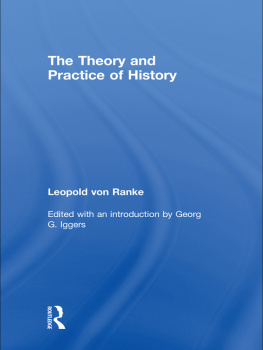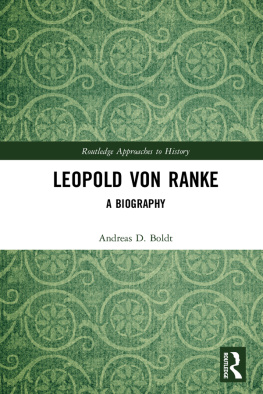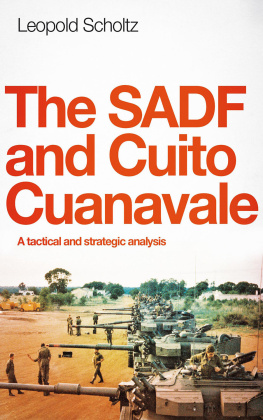TOWARD PERMEABLE
BOUNDARIES OF ORGANIZATIONS?
RESEARCH IN THE SOCIOLOGY OF
ORGANIZATIONS
Series Editor: Michael Lounsbury
Recent Volumes:
Volume 43: | Elites on Trial |
Volume 44: | Institutions and Ideals: Philip Selznicks Legacy for Organizational Studies |
Volume 45: | Towards a Comparative Institutionalism: Forms, Dynamics and Logics Across the Organizational Fields of Health and Higher Education |
Volume 46: | The University Under Pressure |
Volume 47: | The Structuring of Work in Organizations |
Volume 48A: | How Institutions Matter! |
Volume 48B: | How Institutions Matter! |
Volume 49: | Multinational Corporations and Organization Theory: Post Millennium Perspectives |
Volume 50: | Emergence |
Volume 51: | Categories, Categorization and Categorizing: Category Studies in Sociology, Organizations and Strategy at the Crossroads |
Volume 52: | Justification, Evaluation and Critique in the Study of Organizations: Contributions from French Pragmatist Sociology |
Volume 53: | Structure, Content and Meaning of Organizational Networks: Extending Network Thinking |
Volume 54A: | Multimodality, Meaning, and Institutions |
Volume 54B: | Multimodality, Meaning, and Institutions |
Volume 55: | Frontiers of Creative Industries: Exploring Structural and Categorical Dynamics |
Volume 56: | Social Movements, Stakeholders and Non-Market Strategy |
RESEARCH IN THE SOCIOLOGY OF ORGANIZATIONS
VOLUME 57
TOWARD PERMEABLE
BOUNDARIES OF
ORGANIZATIONS?
EDITED BY
LEOPOLD RINGEL
Bielefeld University, Germany
PETRA HILLER
University of Applied Sciences Nordhausen, Germany
CHARLENE ZIETSMA
Pennsylvania State University, USA
Emerald Publishing Limited
Howard House, Wagon Lane, Bingley BD16 1WA, UK
First edition 2018
Copyright 2018 Emerald Publishing Limited
Reprints and permissions service
Contact:
No part of this book may be reproduced, stored in a retrieval system, transmitted in any form or by any means electronic, mechanical, photocopying, recording or otherwise without either the prior written permission of the publisher or a licence permitting restricted copying issued in the UK by The Copyright Licensing Agency and in the USA by The Copyright Clearance Center. Any opinions expressed in the chapters are those of the authors. Whilst Emerald makes every effort to ensure the quality and accuracy of its content, Emerald makes no representation implied or otherwise, as to the chapters suitability and application and disclaims any warranties, express or implied, to their use.
British Library Cataloguing in Publication Data
A catalogue record for this book is available from the British Library
ISBN: 978-1-78743-829-3 (Print)
ISBN: 978-1-78743-828-6 (Online)
ISBN: 978-1-78743-991-7 (Epub)
ISSN: 0733-558X (Series)
CONTENTS
Leopold Ringel, Petra Hiller and Charlene Zietsma
SECTION 1
CONCEPTUALIZING ORGANIZATIONAL BOUNDARIES
Michael Power
Leopold Ringel
Paul S. Adler and Charles Heckscher
Georg Reischauer and Johanna Mair
SECTION 2
BOUNDARIES AND ORGANIZATIONAL DYNAMICS
Vitaliano Barberio, Markus A. Hllerer, Renate E. Meyer and Dennis Jancsary
Martin Heidenreich, Petra Hiller and Steffen Drhfer
Anna Roberts and Charlene Zietsma
Oana Brindusa Albu and Leopold Ringel
SECTION 3
EXTENDING BOUNDARIES: META-ORGANIZATION AND ORGANIZATIONAL NETWORKS
Jelena Brankovic
Maja Apelt and Jana Hunnius
SECTION 4
BOUNDARIES AND ORGANIZATIONAL FIELDS
Angelique Slade Shantz
Kari Kantasalmi and Juha Tuunainen
ABOUT THE AUTHORS
Paul S. Adler is currently Harold Quinton Chair in Business Policy at the Marshall School of Business, University of Southern California, USA. His research and teaching focus on organization theory and design, most particularly in R&D, engineering, software, healthcare, and manufacturing operations.
Oana Brindusa Albu is Associate Professor in the Department of Marketing and Management at the University of Southern Denmark, Odense. Her research focuses on organizational transparency, organizational communication, and information and communication technologies use in the Middle East and North Africa country contexts.
Maja Apelt is Professor of Organizational and Administrative Sociology at the University of Potsdam, Germany. Her main research interests are organizational theories, the relationships between gender and organizations, violent organizations, and qualitative organizational studies. She was the Principal Investigator of a project on the organization of airport security. Currently, she investigates male alliances of military and fire departments.
Vitaliano Barberio is Postdoctoral Researcher at the Research Institute for Urban Management and Governance at WU Vienna, Austria. His research interests include the causes and consequences of social and organizational identities, European integration and policies, institutional organization theory, new organizational forms, meaning making in social media, the relationship between rhetorical strategies, vocabularies and legitimacy, text analysis, and social and semantic network analysis.
Jelena Brankovic is Postdoctoral Researcher and Lecturer at the Faculty of Sociology, Bielefeld University, Germany. She holds a PhD in Sociology from Ghent University. Her research interests are in globalization, forms of interaction between organizations, and competition. She specifically focuses on universities and the ways in which they interact with the broader environment.
Steffen Drhfer is Professor of Business Administration, in particular, Personnel Management and Organization at the University of Applied Sciences Nordhausen, Germany. His publications cover organizational theory and organizational behavior, human resource management, and systemic change management. Steffens current research focuses on dialogic organization development, solution-focused coaching, and new management systems.
Charles Heckscher is a Distinguished Professor at Rutgers University, USA, and Co-Director of the Center for the Study of Collaboration. His research interests include societal trust, the design of collaborative organization, and the changing nature of employee representation. He has also worked as a practitioner and consultant on processes of organizational development, primarily in telecommunications and K-12 education.













